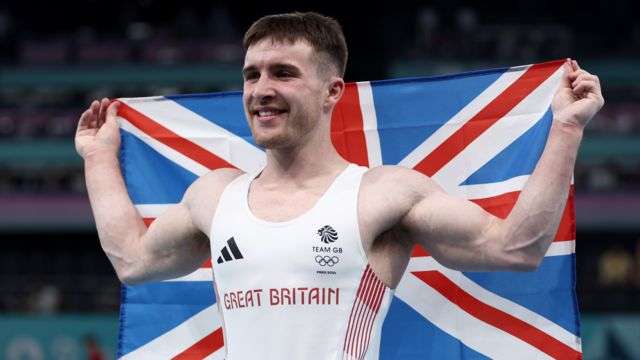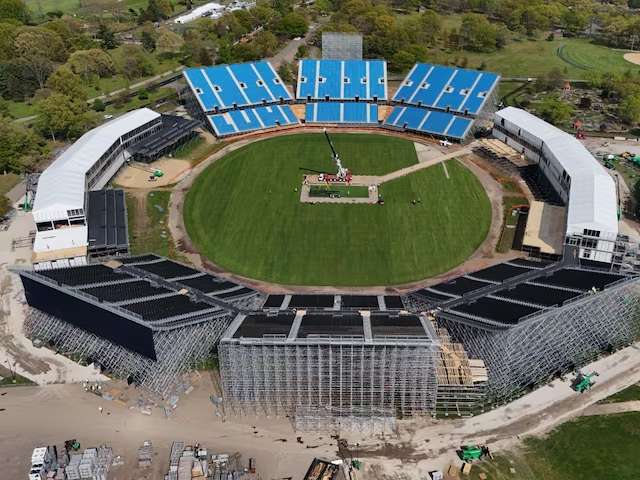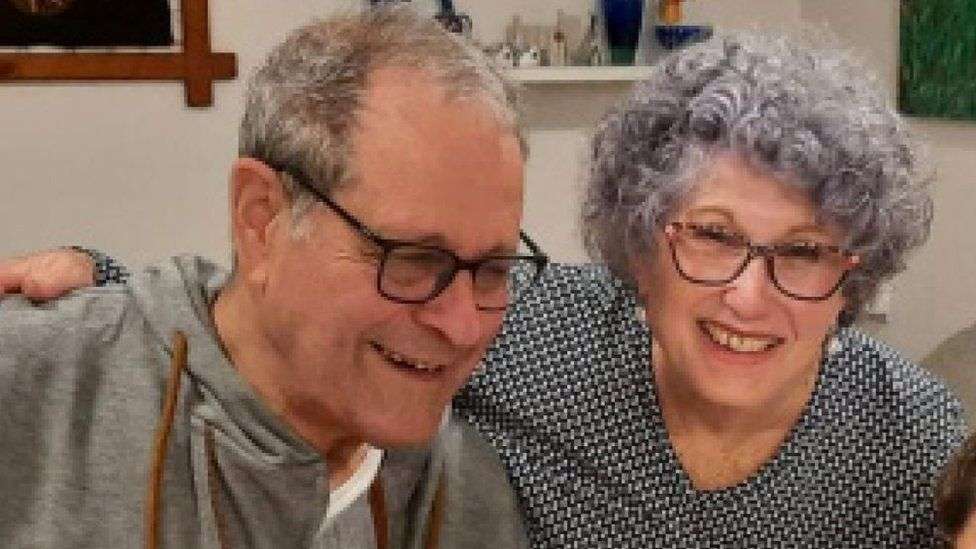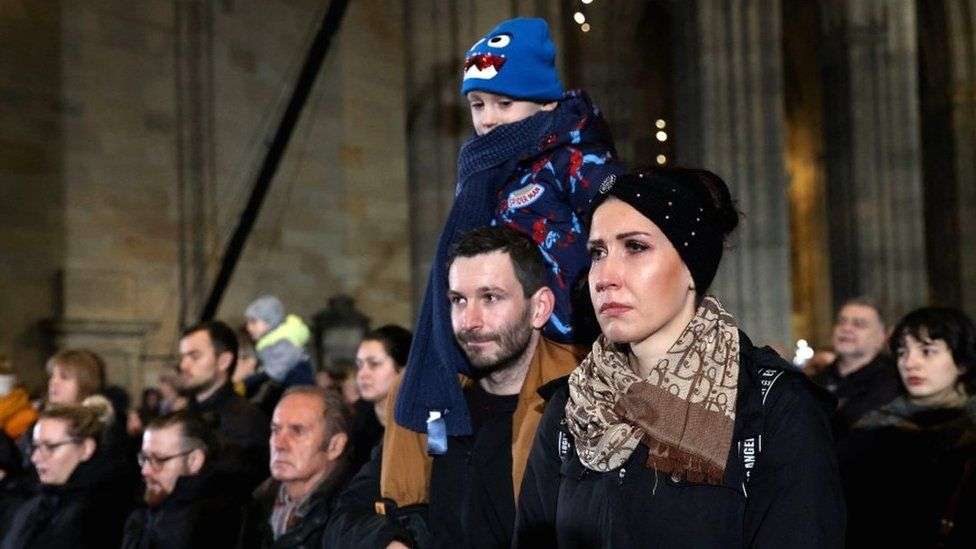Harry Hepworth became the first British man to win an
Olympic vault medal with bronze in a high-quality final in Paris.
Hepworth's score of 14.949 bettered that of compatriot and
reigning world and European vault champion Jake Jarman (14.933), who finished
fourth.
The Philippines' Carlos Edriel Yulo secured his second gold
of the Games (15.116) having topped the podium in the floor event on Saturday,
while silver went to Armenia's Artur Davtyan (14.966).
"I don't know how many hours of training have gone into
this bit of metal - it's a phenomenal feeling," Hepworth said.
"It means the world to me, I've worked my whole life
for this. I don't even know what's happening right now."
Hepworth, 20, was second to compete and was left with an
agonising wait to find out if those following would jump above him on the
scoreboard.
Jarman went third and clung on to the bronze-medal position
until Davtyan, who vaulted last, finally pushed him off the podium.
The pair had already made history by becoming the first GB
men to qualify for an Olympic vault final, after Hepworth also became the first
Briton to reach the rings final, where he finished seventh (14.800).
Jarman won bronze
on floor on Saturday and was expected to add another medal on his
favoured apparatus but Hepworth, competing at his first Games, sprung a
surprise with two consistent vaults which scored highly for execution.
As the youngest member of Great Britain's men's Olympic
team, who finished fourth in the team final, Hepworth has shown immense promise
at this Games having also reached three apparatus finals in his first World
Championships last year.
At the age of five, Hepworth was diagnosed with Perthes
disease - a condition that effects the hip joint - and was unable to
participate in any sport for three years. But a visit to his school from
gymnastics coach Craig Richardson inspired him to take up the sport.
His condition means one of his legs is four centimetres
shorter than the other. But Harrogate-born Hepworth has said he thinks it helps
him with his twisting skills.
He stated before the Games that his ambition was to one day
be Olympic champion in the rings, but he beamed on the podium as he received
his vault bronze after showing he is capable of excelling on more than just one
apparatus.
'Highly likely' Downie's last competition
Earlier, Becky Downie - competing at her third Olympics -
finished seventh (13.633) in the uneven bars final after falling during her
high-risk routine as Kaylia Nemour secured gold (15.700) to win Algeria’s first
ever gymnastics medal.
The 32-year-old went all out on difficulty to challenge for
the gold medal but missed the bar on 'the Downie' - the move named after her -
to put herself out of medal contention.
"As soon as I fell I just felt 'this is how it was
supposed to be'," a tearful Downie told OceanNewsUK.
It had already been an emotional week for the two-time
European champion, competing in Paris just over three years after her
24-year-old brother died a week before the Tokyo Olympic trials - which she
pulled out of.
Tuesday’s team final, where Britain’s women finished fourth,
fell on his birthday and Downie said she "couldn't have done any
more" in Sunday's uneven bars final after a "hard journey".
She added that it was "highly likely" this would
be her last competition having competed in her first Olympics 16 years ago.
"Coming into this I knew it was building up towards the
end," she said.
"I would've loved to finish on a better routine but I
feel like you can go forever trying to chase a medal and this is just how it
was supposed to be today."
American gymnast Simone Biles just missed out on
qualification for the uneven bars final, the only apparatus she has not made
the final in.
She will go in the beam and floor finals on Monday having
already won individual all-around, team and vault titles.








